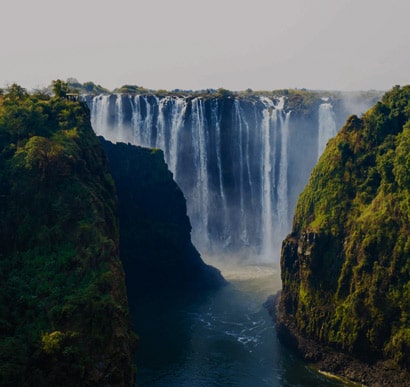BANKING AND CURRENCY
Currency : Zimbabwe uses its own unit of currency, the Zimbabwe Dollar. No other currency is accepted. Do not plan on being able to use cash machines in Zimbabwe to draw money. Before leaving home please exchange all the money that you will need for your trip. Most of this should be in 1, 5, 10 and 20 denominations because change is not always available. In an emergency you can try Barclays Bank, Stanbic Bank or Standard Chartered Bank as they will infrequently accept foreign debit cards for withdrawing cash.
Banking : Banks in Zimbabwe are open for business Monday, Tuesday, Thursday and Friday from 08h00 to 15h00, on Wednesdays from 08h00 to 13h00 and Saturdays from 08h00 to 11h30. They are closed on Sundays and Public Holidays. Only VISA and MasterCard are accepted in Zimbabwe; however it should be noted that very limited facilities will have credit card machines, and the connection is not always reliable so it is advisable to carry cash as back up.
TRAVEL, TRANSPORT AND GETTING AROUND
Taxis are safe and reliable, and can be booked through your hotel front desk. Taxis in cities travel within a 40km radius of the city. Always take a taxi at night. Major airlines fly into Victoria Falls, Harare and Bulawayo. Charter flights are available to most attractions and camps.
Zimbabwe has a good road infrastructure, by African standards, although potholed. Between major towns, there are frequent road blocks. Traffic drives on the left side of the road.
If you are driving yourself around Zimbabwe, be sure to check on fuel availability in advance. If you are covering long distances within the country, ensure you carry extra fuel in 5 or 10lt metal containers in case of emergency. Fuel is generally available, but supply can fluctuate. Fuel is only available for cash.
FOOD, DRINK AND CUISINE ADVICE
Zimbabwe's native cuisine is based on sadza, a cooked porridge made from ground maize which is normally be accompanied by some tasty relish, perhaps made of meat and tomatoes, or dried fish. Safari camps will often prepare sadza if requested, and it is almost always available in small restaurants in the towns.
Camps, hotels and lodges that cater to overseas typically serve a variety international fare, and the quality of food prepared in the most remote bush camps is usually excellent.
If you are driving yourself around and plan to cook, then get most of your supplies in main towns. There are a number of South African shopping chains operating in Zimbabwe which will generally have all that you will need.
Water in the main towns is usually purified.. The locals drink it, and are used to the relatively innocuous bugs that it may harbour. If you are in the country for a long time, then it may be worth acclimatising yourself to it. However, if you are in Zimbabwe for just a short period of time, then try to drink only bottled, boiled, or treated water available in towns and from all camps, lodges and hotels.













